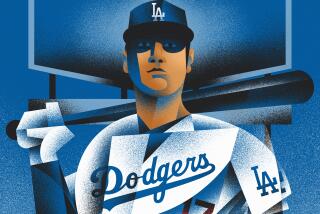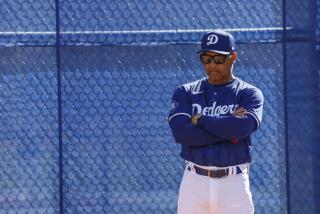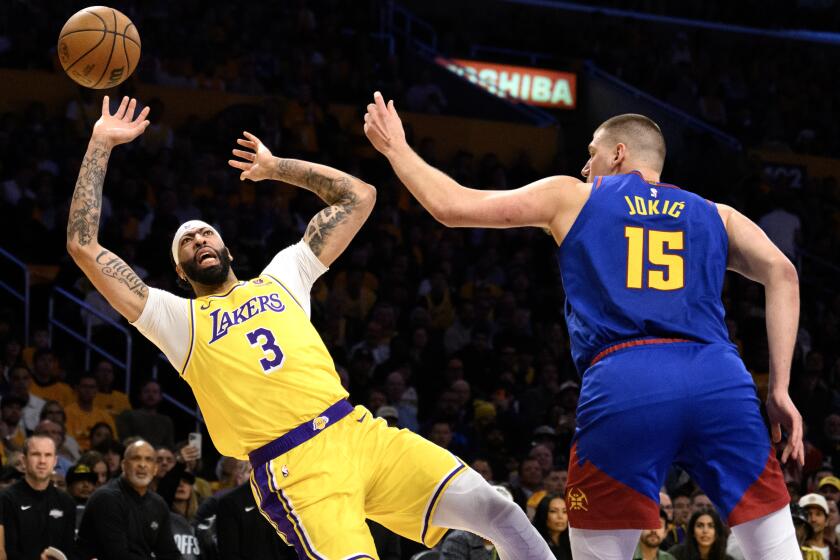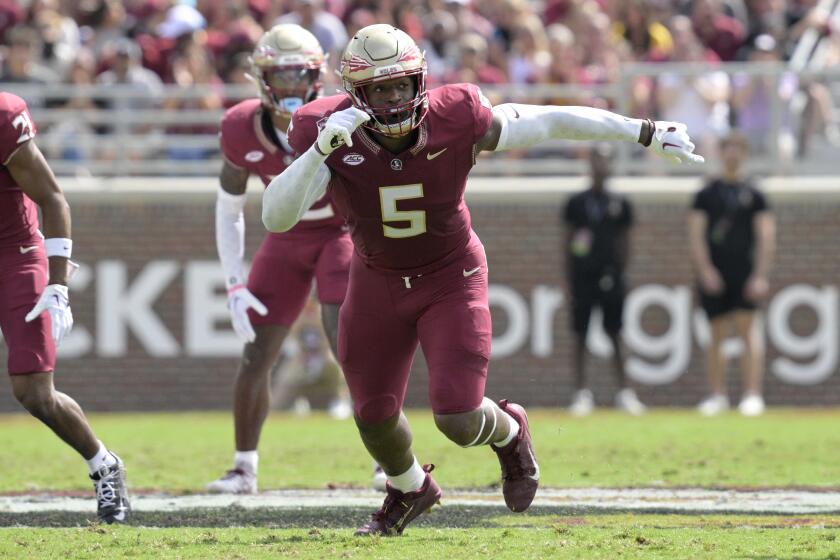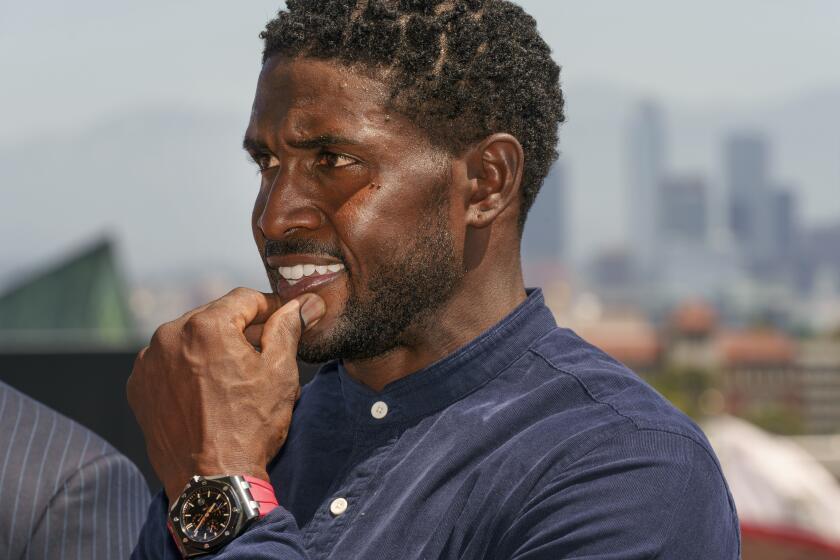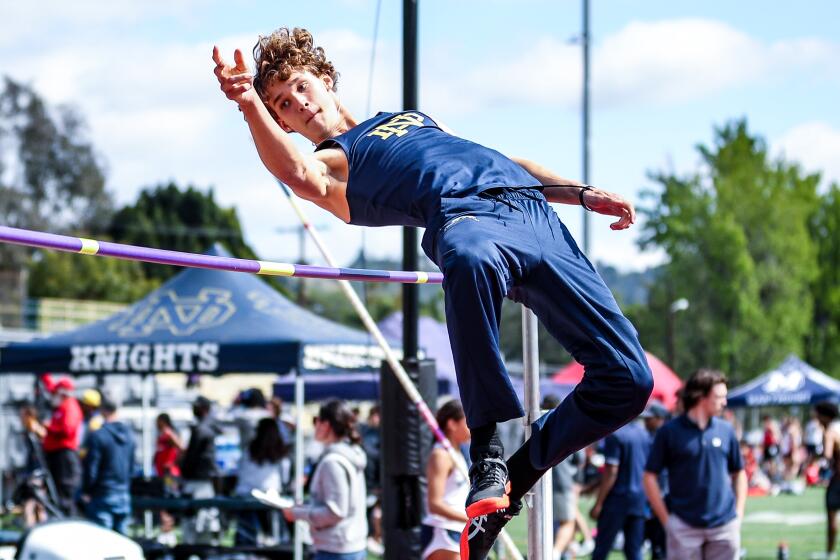Column: With re-signing of Chase Utley, Dodgers show that players and clubhouse culture matter
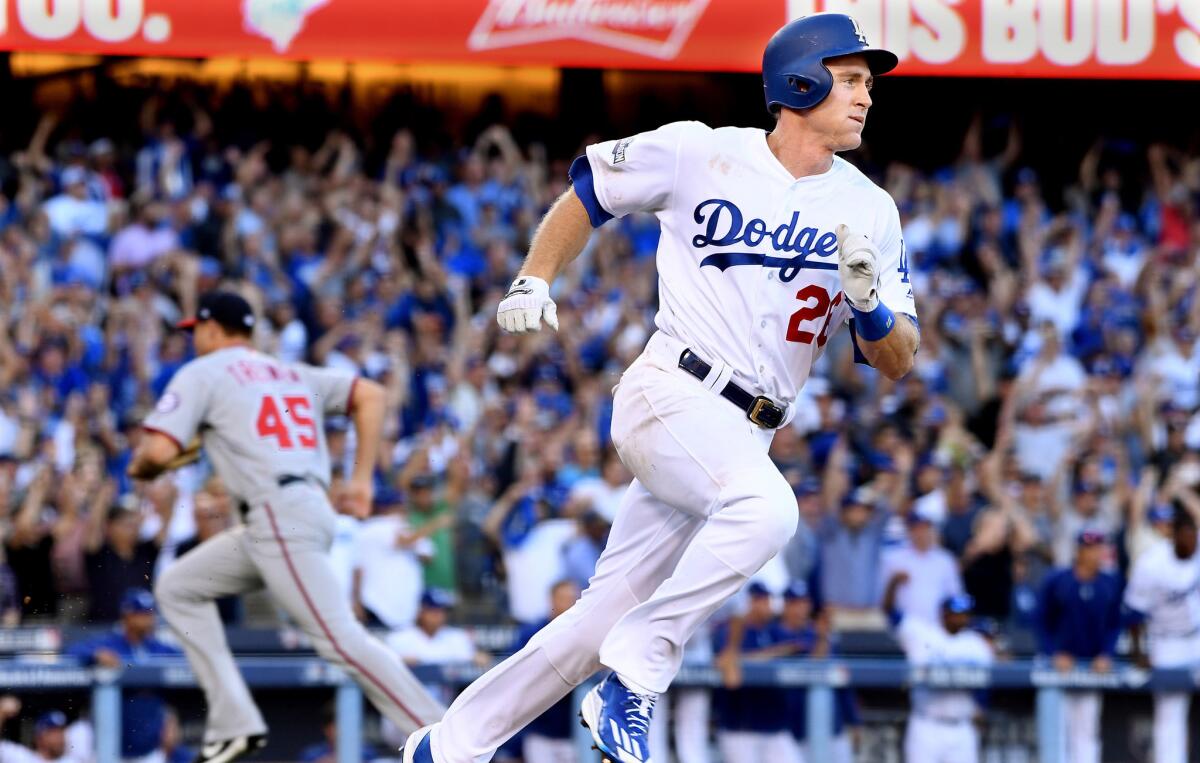
In the coming days, Chase Utley will report to the Dodgers spring training facility in Arizona to take the physical examination required to finalize his new one-year contract.
From the outside looking in, this looks like a minor deal. Utley is 38, and Logan Forsythe will be the team’s primary second baseman.
That won’t be the view on the inside.
By retaining the highly respected veteran, the front office has made a loud and clear statement to the players: What they think counts; how they feel matters.
Add the Utley deal to everything else the Dodgers did this winter — trading for Forsythe, re-signing Kenley Jansen, Justin Turner and Rich Hill — and the guess here is that players will open spring training this week with a greater trust of the team’s decision makers.
This is no small development, considering everything that has transpired over the last couple of years, when well-liked players were traded and key contributors weren’t re-signed.
From the time Andrew Friedman became the team’s president of baseball operations, many players viewed the front office with a degree of skepticism. Privately, they wondered whether the club’s analytically inclined executives were more invested in stocking the farm system than winning now, and they questioned the sincerity of declarations made about the importance of clubhouse culture.
After I wrote a series of columns that were critical of the front office last spring, one player called me over to his locker.
“Many of us have been asking the same questions,” the player said.
When popular catcher A.J. Ellis was traded in August, another player said, “We get it.”
What they understood was that it was Friedman’s team, not theirs. Ellis was Clayton Kershaw’s closest friend on the team. So much for chemistry.
Even Manager Dave Roberts was initially viewed with suspicion. Whatever their appraisal of Don Mattingly as an in-game manager, players were certain he had their backs. If the front office let go of Mattingly and replaced him with Roberts, they surmised, it was because Roberts agreed to be a lackey.
Roberts won over his players over the course of his rookie season. The front office accomplished the same over the last several months.
Management gained a measure of credibility in August by sending a disruptive Yasiel Puig to the minor leagues, effectively disciplining a player who previously operated above the law.
Then came the winter. In an off-season when relatively little money was spent around the league, the Dodgers committed nearly $200 million to bring back Jansen, Turner and Hill. These were win-now moves that had the added benefit of rewarding high-character players.
If Jansen, Turner and Hill were viewed as necessary components to remain contenders, Utley represented something else. In his short time with the Dodgers, he emerged as a silent leader, a model of professionalism for players both young and old.
Utley’s hard-nose style and attentiveness to detail was admired by everyone from Corey Seager to Kershaw, who once said, “If I ever have a son, I’m going to tell him, ‘Watch the way Chase plays the game. That’s the way you want to play the game.’”
Utley wouldn’t be back if the Dodgers didn’t think he could still produce, but what he offered beyond his play was a major consideration.
Most likely, what changed wasn’t the front office’s philosophy, but the team’s circumstances. Two years of re-configuring the major league roster and restocking the minor league system have afforded the Dodgers the freedom to find an edge outside their spreadsheets.
And yes, culture matters. It’s what makes a batter want to give himself up to move over a runner. It’s what inspires a closer to offer to pitch multiple innings in the playoffs, as Jansen did in October.
General Manager Farhan Zaidi said he always wanted to create something similar to what the New England Patriots had in 2001. That was the season the Patriots asked to not be introduced individually at the Super Bowl. Instead, they took the field as a team.
“That really resonated with me and stuck with me,” Zaidi said. “That’s what we’re trying to build.”
That alone won’t make the Dodgers champions. But it should move them closer.
Follow Dylan Hernandez on Twitter @dylanohernandez
More to Read
Get our high school sports newsletter
Prep Rally is devoted to the SoCal high school sports experience, bringing you scores, stories and a behind-the-scenes look at what makes prep sports so popular.
You may occasionally receive promotional content from the Los Angeles Times.
